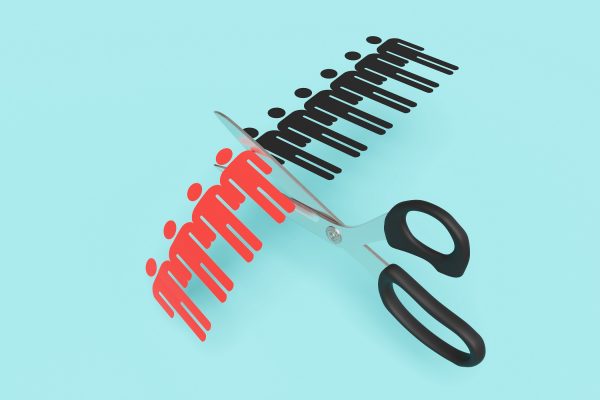The statistics are stark and speak for themselves. In 2015/16 stress accounted for 37% of all work related ill health cases.
The total number of working days lost due to stress in 2015/16 was 11.7 million days. This equated to an average of 23.9 days lost per case; with 45% of all working days lost due to ill health. Employers and managers cannot ignore the consequences of a diagnosis by others of a work-related stress!
Well-designed, organised and managed work is good for us and it has often been said that most of thrive under some pressure. But… where there is insufficient attention to job design, work organisation and management of work it can result in work related stress. Work related stress develops because a person is unable to cope with the demands being placed on them; i.e. too much pressure! Work-related stress, can be a significant cause of illness and is known to be linked with high levels of sickness absence, staff turnover and other issues, such as more errors.
Stress can hit anyone at any level of the business and recent research shows that work-related stress is widespread and is not confined to particular sectors, jobs or industries. The main work factors cited by workers as causing work-related stress, or depression or anxiety were workload pressures, including tight deadlines and too much responsibility and a lack of managerial support.
The Mental Health Foundation has released a series of publications aimed at helping people understand how to effectively manage their own mental health, including:
• Managing and reducing stress,
• Looking after your mental health using exercise and
• How to manage fear and anxiety.
These guides could be useful to disseminate among your workforce to read at their leisure, and they might help managers in planning and preparing guides or toolbox talks in educating your workers about managing their own mental health and wellbeing. The first of these guides can be downloaded from: http://www.shponline.co.uk/wp-content/uploads/2017/01/How-to…mental-health.pdf and we have summarised the key points below.
The Mental Health Foundation publications are aimed at helping people understand how to effectively manage their own mental health, including managing and reducing stress, looking after your mental health using exercise and how to manage fear and anxiety. These guides could be useful to disseminate among your workforce to read at their leisure, and might help managers in planning and preparing guides or toolbox talks in educating your workers about managing mental health.
Mental Health Is Everyone’s Business… The Mental Health Foundation has released a series of publications aimed at helping people understand how to effectively manage their own mental health, including managing and reducing stress, looking after your mental health using exercise and how to manage fear and anxiety. These guides could be useful to disseminate among your workforce to read at their leisure, and might help managers in planning and preparing guides or toolbox talks in educating your workers about managing mental health.
Being mentally healthy doesn’t just mean that you don’t have a mental health problem. If you have good mental health, you can:

Stocking only premium EV charging cables, we ensure you experience a stress-free EV charge, over and over, confidently backed by our 2 year warranty. Our premium & reliable charging cables are compliant with EU & UK safety standards. We offer free next day delivery* on all EV charging cables when shipped within mainland UK.
- Make the most of your potential
- Cope with life
- Play a full part in your family, workplace, community, and among friends
Some people call mental health ‘emotional health’ or ‘wellbeing’. Mental health is everyone’s business. We all have times when we feel down, stressed or frightened. Most of the time those feelings pass, but sometimes they develop into a more serious problem, and this could happen to any one of us.
Everyone is different. You may bounce back from a setback, while someone else may feel weighed down by it for a long time.
Your mental health doesn’t always stay the same. It can change as circumstances change and as you move through different stages in your life.
Unfortunately, stigma can be attached to mental health problems. This means that people feel uncomfortable about them and don’t talk about them much. Many people don’t even feel comfortable talking about their feelings. But it’s healthy to know and say how you’re feeling.
1. Talk about your feelings: Talking about your feelings can help you stay in good mental health and deal with times when you feel troubled
2. Keep active: Regular exercise can boost your self-esteem and can help you concentrate, sleep, and look and feel better.
3. Eat well: What we eat may affect how we feel – for example, caffeine and sugar can have an immediate effect.
4. Drink sensibly: We often drink alcohol to change our mood. Some people drink to deal with fear or loneliness, but the effect is only temporary.
5. Keep in touch: Strong family ties and supportive friends can help you deal with the stresses of life. Family and friends can help keep you active, keep you grounded and can help you solve practical problems.
6. Ask for help: None of us are superhuman. We all sometimes get tired or overwhelmed by how we feel or when things don’t go to plan. Ask for help. Your family or friends may be able to offer practical help or a listening ear.
7. Take a break: A change of scene or a change of pace is good for your mental health. A few minutes can be enough to de-stress you. Give yourself some ‘me time’
8. Do something you’re good at: What do you love doing? What activities can you lose yourself in? What did you love doing in the past?
9. Accept who you are: We’re all different. It’s much healthier to accept that you’re unique than to wish you were more like someone else. Feeling good about yourself boosts your confidence to learn new skills, visit new places and make new friends. Some of us make people laugh, some are good at maths, and others cook fantastic meals.
10. Care for others: Caring for others is often an important part of keeping up relationships with people close to you. It can even bring you closer together. ‘Friends are really important… We help each other whenever we can, so it’s a two-way street, and supporting them uplifts me.’







